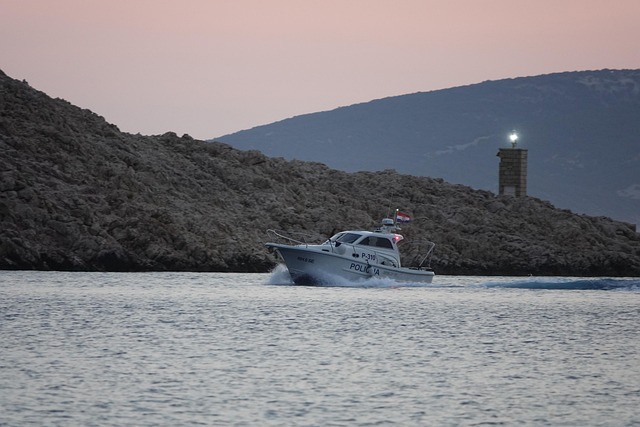Public corruption charges can severely disrupt business partnerships. Entrepreneurs must understand legal implications, seek prompt legal counsel, and implement robust strategies from the outset to avoid these pitfalls. These include meticulous documentation, clear communication, ethical conduct, regular anti-corruption training, and independent oversight bodies. Recent case studies show successful navigation of public corruption allegations through comprehensive compliance programs, internal controls, and whistleblower cultures, thereby avoiding costly legal battles and fostering integrity.
“In the intricate landscape of global business, understanding public corruption charges is paramount for navigating legal complexities and maintaining ethical practices. This article unravels the definition and legal implications of such charges, offering crucial insights into their prevention. We explore strategic approaches for business partnerships to avoid legal battles related to corruption, highlighting effective strategies that foster transparency and accountability. Furthermore, through compelling case studies, we present success stories of organizations that have successfully navigated and prevented public corruption allegations.”
- Understanding Public Corruption Charges: Definition and Legal Implications
- Strategies for Business Partnerships to Avoid Legal Battles Related to Corruption
- Case Studies: Success Stories in Navigating and Preventing Public Corruption Allegations
Understanding Public Corruption Charges: Definition and Legal Implications

Public Corruption Charges refer to allegations of illegal or unethical behavior by individuals in positions of public trust, such as government officials, who abuse their power for personal gain. This can include acts like bribery, embezzlement, fraud, and misuse of public funds. Understanding these charges is crucial for anyone involved in business partnerships, as it helps in navigating legal complexities and avoiding potential pitfalls. By recognizing the legal implications early on, entrepreneurs and business leaders can protect themselves and their respective businesses from entanglements that may hinder achieving extraordinary results.
When faced with public corruption allegations, seeking prompt legal counsel is essential. A skilled attorney can help navigate the intricate legal landscape, ensuring a complete dismissal of all charges if the accusations are unfounded or poorly substantiated. Understanding the laws and regulations surrounding these cases allows business partners to act swiftly, upholding their integrity while safeguarding their interests. This proactive approach enables them to focus on the strategic growth of their respective businesses rather than getting mired in legal battles.
Strategies for Business Partnerships to Avoid Legal Battles Related to Corruption

To avoid legal battles related to corruption, business partnerships must implement robust strategies that foster transparency and accountability from the outset. This includes meticulous documentation of all transactions, clear communication channels between partners, and a comprehensive understanding of each other’s roles and responsibilities. Adopting a culture of ethical conduct and adhering to strict compliance standards is vital in mitigating risks associated with white-collar and economic crimes. Regular training on anti-corruption regulations and promoting a strong white-collar defense mechanism within the organization can significantly contribute to achieving extraordinary results while steering clear of legal complications.
Moreover, establishing independent oversight bodies or committees responsible for monitoring partnerships and scrutinizing potential conflicts of interest is a proactive step. These measures not only help in identifying and addressing issues early but also demonstrate a commitment to upholding integrity within business relationships. By prioritizing transparency and accountability, partnerships can navigate complex landscapes with confidence, ensuring long-term sustainability and success while avoiding costly legal battles.
Case Studies: Success Stories in Navigating and Preventing Public Corruption Allegations

In recent years, several case studies have emerged as success stories in navigating and preventing public corruption allegations. One notable example is the proactive approach taken by a group of philanthropists within political communities who proactively established robust compliance programs and transparency measures to avoid legal battles in business partnerships. These initiatives aimed to foster a culture of integrity, ensuring that all interactions were above board and ethically sound.
Additionally, high-stakes cases have highlighted the importance of thorough due diligence and ethical oversight. Businesses that invest time and resources into understanding potential risks and implementing stringent anti-corruption strategies have successfully avoided indictments. By fostering strong internal controls and promoting a whistleblower culture, these organizations have not only mitigated legal risks but also strengthened their reputations within their respective industries and political landscapes.
Public corruption charges can pose significant risks for businesses involved in public contracts. By understanding the legal implications and implementing robust anti-corruption strategies, such as fostering transparent partnerships and adhering to strict compliance standards, companies can effectively navigate these challenges. The case studies presented highlight successful approaches to avoiding legal battles related to corruption, emphasizing the importance of proactive measures and ethical conduct in business partnerships. Businesses that prioritize integrity and transparency are better equipped to thrive in a competitive market while mitigating potential legal risks.






